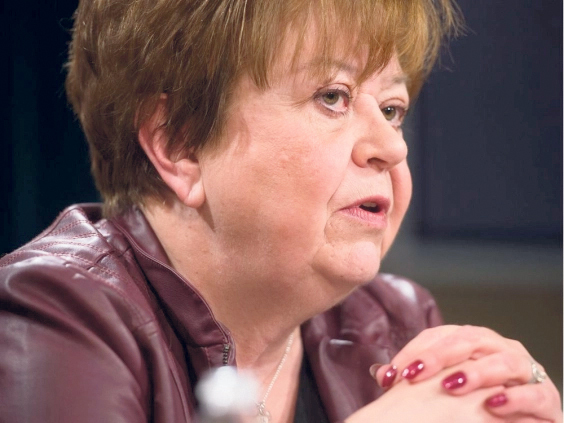The provincial chamber of commerce and municipal associations all responded positively to Tuesday’s budget.
The Saskatchewan Chamber of Commerce (SCC) said the budget contains “several important new items” for Saskatchewan businesses.
“While the pandemic has impacted every household and business differently, we will collectively recover by focusing on health and safety protocols, and by vaccinating our residents as soon as possible. Once the pandemic is less of a concern, we expect the province to renew and increase its focus on the transition to economic recovery and building resilience into all we do in Saskatchewan,” said Saskatchewan Chamber of Commerce CEO, Steve McLellan.
The SCC touted capital investments such as the Lake Diefenbaker irrigation project, $23.2 million to improve the cyber security of public service systems and ongoing supports for businesses impacted by COVID-19.
The University of Regina, Saskatchewan Urban Municipalities Association and Saskatchewan Association of Rural Municipalities were wall pleased with the overall budget. SUMA and The U of R applauded consistent, predictable funding promises, while SARM noted that revenue sharing decreased slightly, but was appreciative of infrastructure, oil and gas, rural crime and STARS spending.
Not everyone was happy.
The NDP and several of the province’s unions are among those unimpressed with the government’s 2021-22 budget.
Thursday marked a legislature first, as NDP critic Aleana Young called the budget a “nothing-burger.” According to Leader-Post reporter Arthur White-Crummey, that’s the first time the term had been used in the legislature.
The NDP said Tuesday that the budget “doesn’t get the job done” and breaks key election commitments.
The NDP said the lack of a jobs plan, failing to remove the PST from construction labour and restaurant meals, not taking responsibility for a lack of action to prevent a third wave of COVID-19 keeping the minimum wage as is, not investing in long-term care or education and not acting to further diversify the economy and invest in green technology are all examples of what they deem failures.
Leader Ryan Meili also said the government’s announcement that they will hire 90 continuing care aids and spread the hiring of 300 out over three years represents a broken campaign promise.
The SaskParty campaigned on hiring 300 positions. The NDP says that the promise makes no mention of it being phased in over three years, and points out that the costing document includes $18.4 million for the project over the government’s full mandate, not just spread over three years.
“The government said during the election they would balance the budget by 2024, knowing full well that they would not. That lie was confirmed today. They said there would be no tax increases for families. Instead, property taxes for families are going up. And now we see the government lied to families in the last election about their plans to increase staffing in our hard-hit long-term care facilities,” said Meili. “The truth is, when it comes to what matters most to Saskatchewan families, Scott Moe simply can’t be trusted.”
Unions displeased with budget
Several of the province’s public sector unions also expressed their displeasure with the budget.
Unifor said the document “disappointment on all fronts” and said calls to increase minimum wage and add paid sick leave went unanswered. It further called health care investments “timid,” criticized flat education funding and said little was done to boost public programs and Crown corporations’ residents rely on.
CUPE made similar comments, calling the budget an “abdication of the provincial government’s responsibility to protect citizens,” while SEIU-West said it “ignores the realities” of COVID-19.
SEIU-West said that in terms of percentage increases, the lowest were seen in K-12 education and the health sector, while the largest, 500 per cent, was in the ministry of Trade and Export.
“This is telling when we look at our provincial priorities over the last year,” president Barbara Cape said.
Cape said the 300 CCAs for long-term care was “insufficient” to begin with, and just hiring 90 is “unconscionable … a fact made so abundantly clear during our prior year of long-term care tragedies during a global pandemic.”
SEIU-West wasn’t the only one to criticize the education budget increase. Since the budget was announced, the NDP have said the increase provided to school divisions is lower than the total amount of the negotiated salary increase for teachers, leaving a gap that school boards will have to make up.
Adding to the concerns raised by other unions, CUPE criticized the lack of funding for addictions. They said 12 new treatment beds are welcome but not come close to what the province needs.


